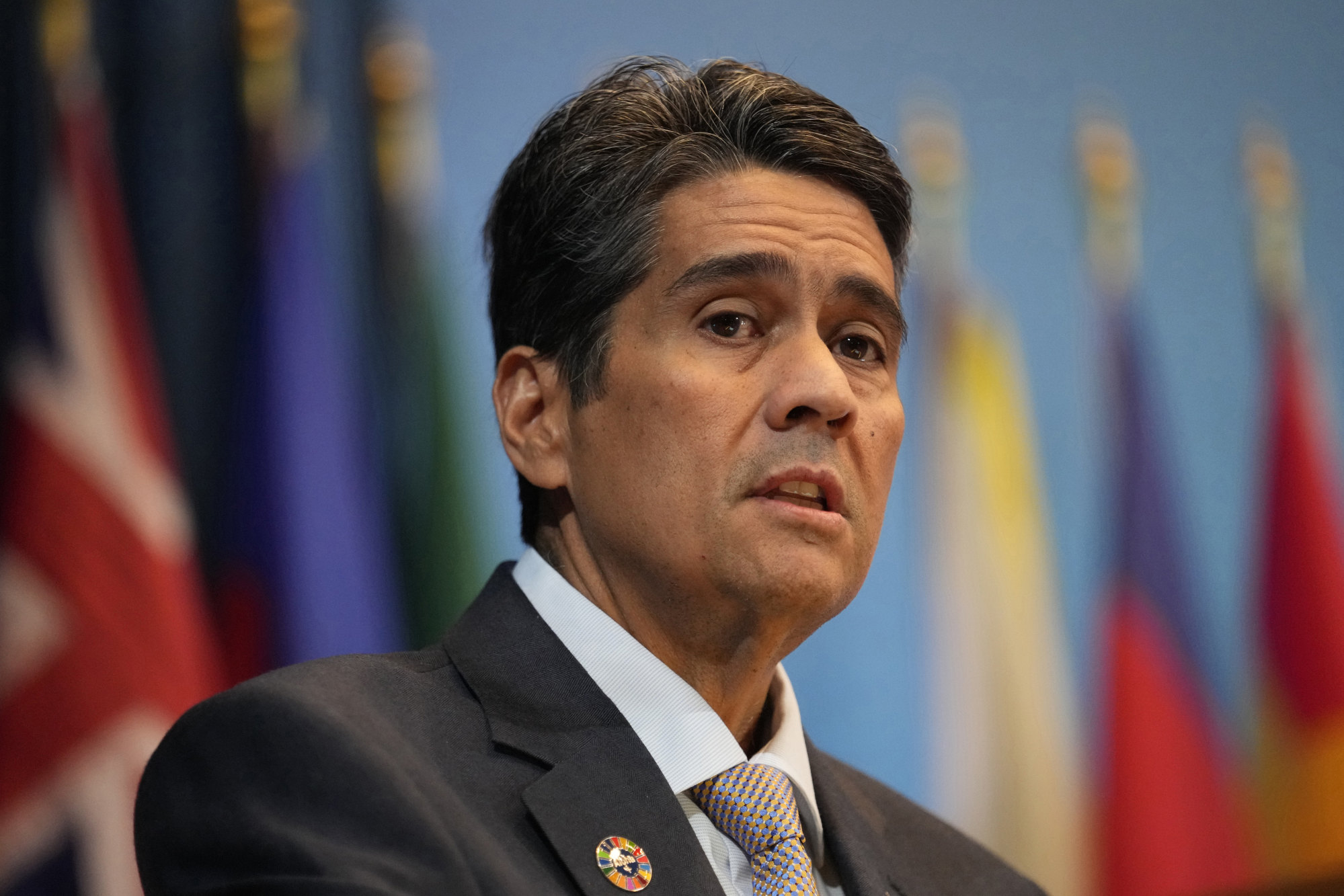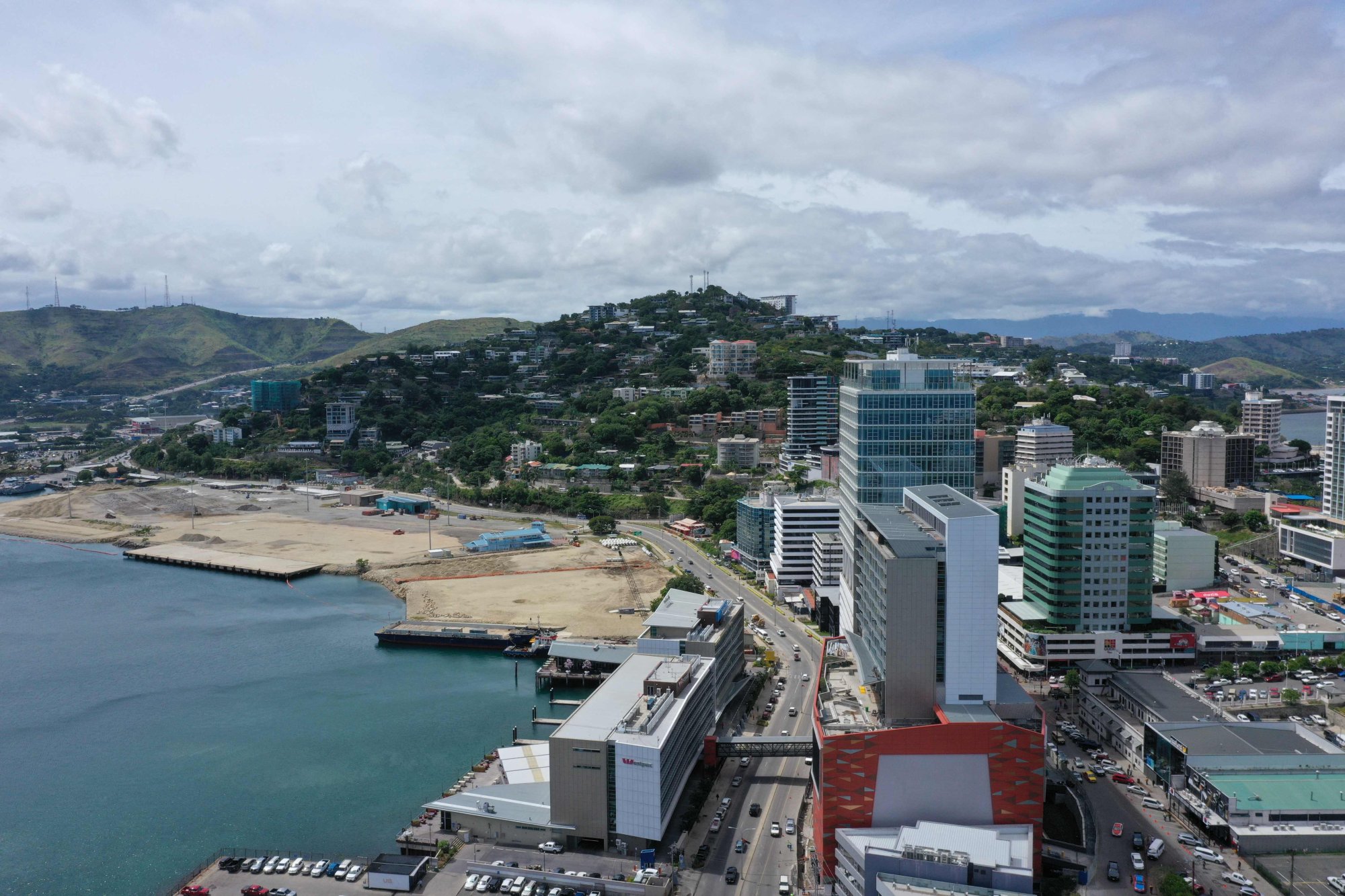
US to sign strategic pacts with 2 Pacific states, hopes for third in weeks
- A US presidential envoy said the Palau agreement would be signed in Papua New Guinea on Monday, while the Micronesia pact would be signed on Tuesday
- Yun initialled the agreements – part of US efforts to shore up support among Pacific island states to counter competition from China – last week
Joseph Yun told Reuters the Palau agreement would be formally signed in the presence of US Secretary of State Antony Blinken and Palau President Surangel Whipps Jnr in Papua New Guinea (PNG) on Monday, while the Micronesia pact would be signed on Tuesday in Micronesia.
Yun initialled the agreements, part of US efforts to shore up support among Pacific island states to counter competition from China, during visits to Micronesia and Palau in the past week. As anticipated, he was unable to conclude the deal with the Marshall Islands.

“We have made progress over my three-day visit to Marshall Islands and we hope to sign an agreement with the Marshall Islands in the coming weeks,” he said.
Washington first reached what are known as Compact of Free Association (COFA) accords with the three island states in the 1980s, under which it retains responsibility for their defence and provides economic help while gaining exclusive access to huge strategic swathes of the Pacific in return.
Renewing them has become a key part of US efforts to push back against China’s bid to expand its influence in the Pacific. Chinese diplomats have been courting the region and China’s construction and mining companies have expanded their business in many Pacific island nations.
Blinken will take his place and also sign bilateral defence and maritime security agreements with PNG and meet leaders of the Pacific Islands Forum. Biden’s national security adviser said on Wednesday the president would arrange another summit of Pacific island leaders this year after the disappointment caused by his cancellation.
The defence agreement would boost PNG’s defence infrastructure and capability after decades of neglect, a PNG government statement said on Saturday.
Highlighting domestic political sensitivity over taking sides in the strategic competition between the US and China, the statement said the deal would “not stop Papua New Guinea from working with other nations including China”.
The defence agreement also will not give visiting US military personnel immunity for criminal conduct, the statement said.
“Assets developed under [the agreement] will be owned by PNG Government,” it said, adding that the agreement was about building defence capabilities because border disputes are “inevitable in the future”.
“Papua New Guinea does not have enemies but it pays to be prepared,” it added, noting Russia’s invasion of Ukraine.

Yun said Micronesia preferred to formalise its agreement on home territory. Earlier he said both Palau and Micronesia would sign their COFAs in PNG.
The Marshall Islands’ COFA is due to expire this year. Yun gave no reason for the hold-up in renewing that, but a parliamentary election is expected there in November.
Yun called the deals “strategically important”.
“We’ve achieved two out of three,” he said. “Compacts are very important for the United States. It defines the relationship between us and northern half of the Pacific.”
Yun said last month “topline” agreements would provide the three COFA states with a total of about US$6.5 billion over 20 years.
Last year, more than 100 arms-control, environmental and other activist groups urged the Biden administration to formally apologise to the Marshall Islands for the impact of massive US nuclear testing there and to provide fair compensation.
Marshall Islanders are still plagued by health and environmental effects of the 67 US nuclear bomb tests from 1946 to 1958, which included “Castle Bravo” at Bikini Atoll in 1954 – the largest US bomb ever detonated.

